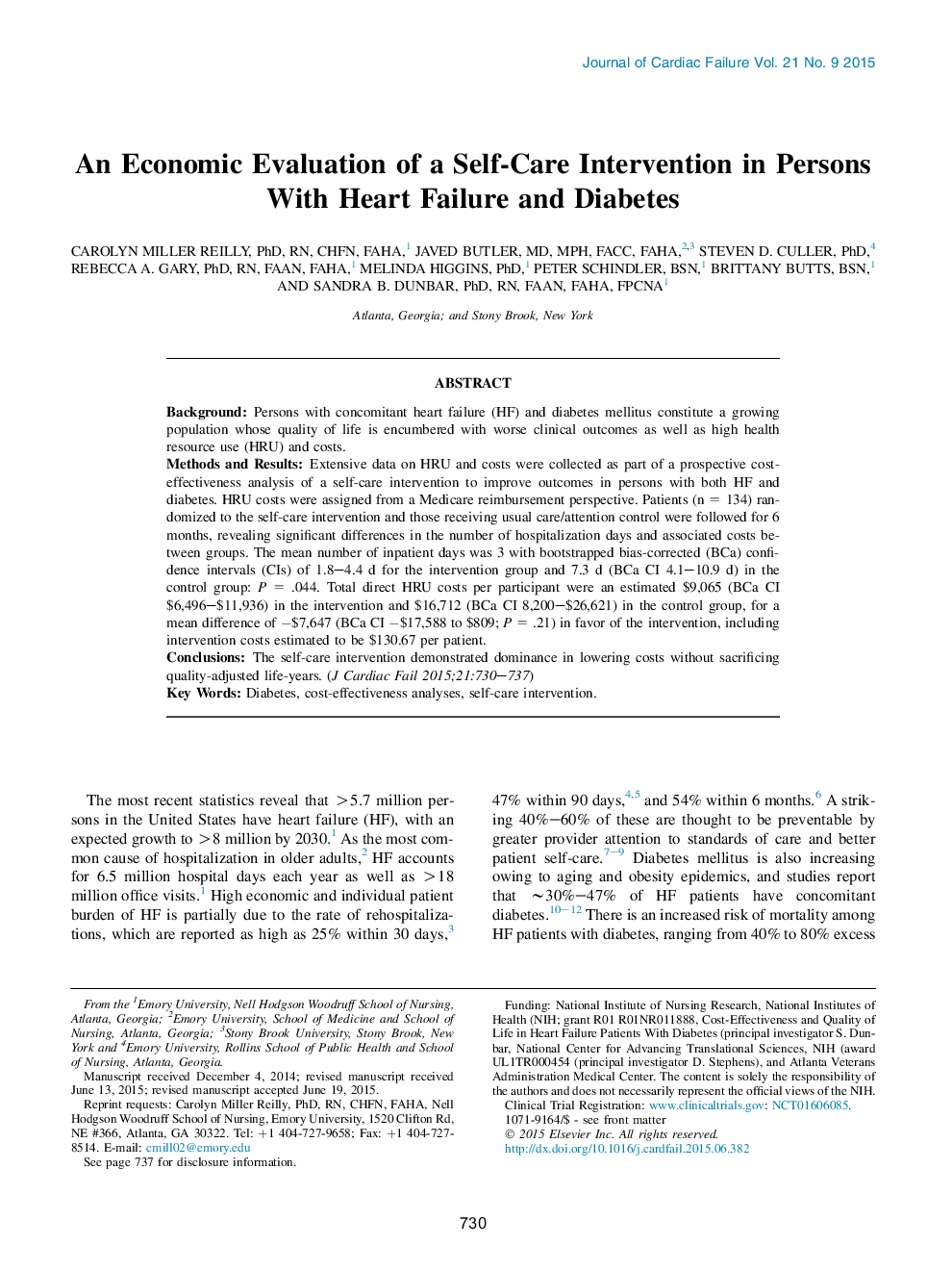| Article ID | Journal | Published Year | Pages | File Type |
|---|---|---|---|---|
| 2958719 | Journal of Cardiac Failure | 2015 | 8 Pages |
•A self-care intervention to improve outcomes in patients with both heart failure and diabetes mellitus was associated with net cost savings of $7,647 per patient over a 6-month period.•The reduced cost was driven primarily by a reduction in the number of days hospitalized, which averaged about 4 days/patient.•The cost of the intervention was low, averaging $131/patient.
BackgroundPersons with concomitant heart failure (HF) and diabetes mellitus constitute a growing population whose quality of life is encumbered with worse clinical outcomes as well as high health resource use (HRU) and costs.Methods and ResultsExtensive data on HRU and costs were collected as part of a prospective cost-effectiveness analysis of a self-care intervention to improve outcomes in persons with both HF and diabetes. HRU costs were assigned from a Medicare reimbursement perspective. Patients (n = 134) randomized to the self-care intervention and those receiving usual care/attention control were followed for 6 months, revealing significant differences in the number of hospitalization days and associated costs between groups. The mean number of inpatient days was 3 with bootstrapped bias-corrected (BCa) confidence intervals (CIs) of 1.8–4.4 d for the intervention group and 7.3 d (BCa CI 4.1–10.9 d) in the control group: P = .044. Total direct HRU costs per participant were an estimated $9,065 (BCa CI $6,496–$11,936) in the intervention and $16,712 (BCa CI 8,200–$26,621) in the control group, for a mean difference of −$7,647 (BCa CI −$17,588 to $809; P = .21) in favor of the intervention, including intervention costs estimated to be $130.67 per patient.ConclusionsThe self-care intervention demonstrated dominance in lowering costs without sacrificing quality-adjusted life-years.
